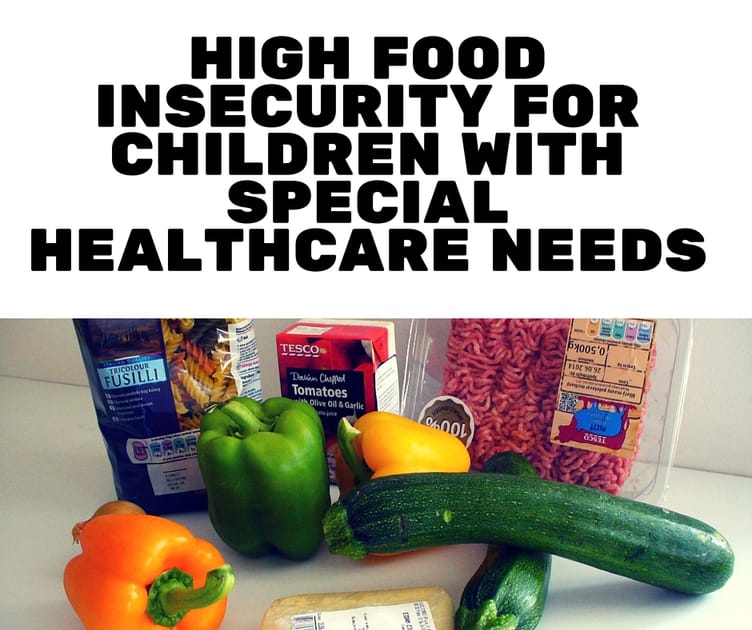
A new study conducted by researchers at Boston Medical Center (BMC) has found that low-income families with children that have special healthcare needs have a high likelihood of food insecurity. This is the case even when they receive aid such as Supplemental Security Income (SSI) or take part in the Supplemental Nutrition Assistance Program (SNAP) or the Women, Infants and Children (WIC) program. The study, published in the Journal of Developmental and Behavioral Pediatrics, indicates that here is a need to re-valuate the way we determine who is qualified for nutritional assistance so that those at a risk of food insecurity are spared the discomfort, pain, and illness associated with a lack of adequate nutrition.
The study was carried out at emergency and primary care centers across the United States. Some 14.8 percent of the 6,724 children under four who were eligible for the study had special health care needs but did not receive SSI (SSI is aimed at helping families with low incomes with children with special health care needs). Only 3.7 percent of children had special health care needs and received SSI. Even after receiving SNAP and WIC assistance, low-income families receiving SSI for a child with special health care needs were still more likely to face household food insecurity in their homes than those who did not receive SSI. The researchers expressed their surprise at their findings, concluding that “the current calculations for receipt of the combined benefits of SSI, SNAP, and WIC may not be adequate to prevent food insecurity” in these households.
Who Classifies as Having Special Healthcare Needs?
According to the Maternal and Child Health Bureau, children with special health care needs are “Those who have one or more chronic physical, developmental, behavioral, or emotional conditions and who also require health and related services of a type or amount beyond that required by children generally.” Children with special cognitive needs may also have special health care needs. Their condition may be congenital, developmental, or acquired via illness, environmental factors or trauma and may place special limits on their ability to take part in activities or to carry out regular self-maintenance activities. A report published in 2011 indicated that some 11.4 per cent of children in America aged less than five have these needs.
Examples of conditions which may impose special health care needs include cerebral palsy, muscular dystrophy, depression, ADHD, asthma, and other chronic conditions and illnesses.
States generally have programs that give families information on health insurance and health care providers, though often these needs range beyond what is officially provided and can extend to additional therapy, specific nutrition, etc.
Some conditions can impose heavy financial burdens on families from low-income brackets. For instance, children with diabetes or neurological impairments may not qualify for benefits that will pay for special formula or food.
The Link Between Special Healthcare Needs and Food Insecurity
Children with special health care needs often need expensive treatments or diets. Their parents may not be able to afford to feed their family to adequate nutritional standards. Sometimes, access to food is so limited that meals are sipped or less nutritional foods are purchased because of their lower cost. Hunger, a condition that may arise from food insecurity, can result in weakness, discomfort, illness, and pain when it is prolonged. Food insecurity also causes considerable psychological anguish, as parents worry that food will run out or not last.
Clearly, nutritional assistance should be extended to many more families to ensure that illness of one child does not have a negative impact on the child himself or other family members. In this way, further health burdens can be avoided by patients and their loved ones.
Further Reading:
Boston University, Low-income families having children with special health care needs at high risk for food insecurity, accessed February, 2016.
Leslie Kenton, Nature’s Child: Trust their Appetite, accessed February, 2016.
QZ, Health Care Resources, accessed February, 2016.
New York State Department of Health, Children and Youth with Special Health Care Needs (CYSHCN) Program, accessed February, 2016.
CAHMI, Resources for Families and Family Advocates, accessed February, 2016.
Brookings, Challenges Facing Low-Income Individuals and Families, accessed February, 2016.
Economics 21, Challenges Facing Low-Income Individuals and Families, accessed February, 2016.

